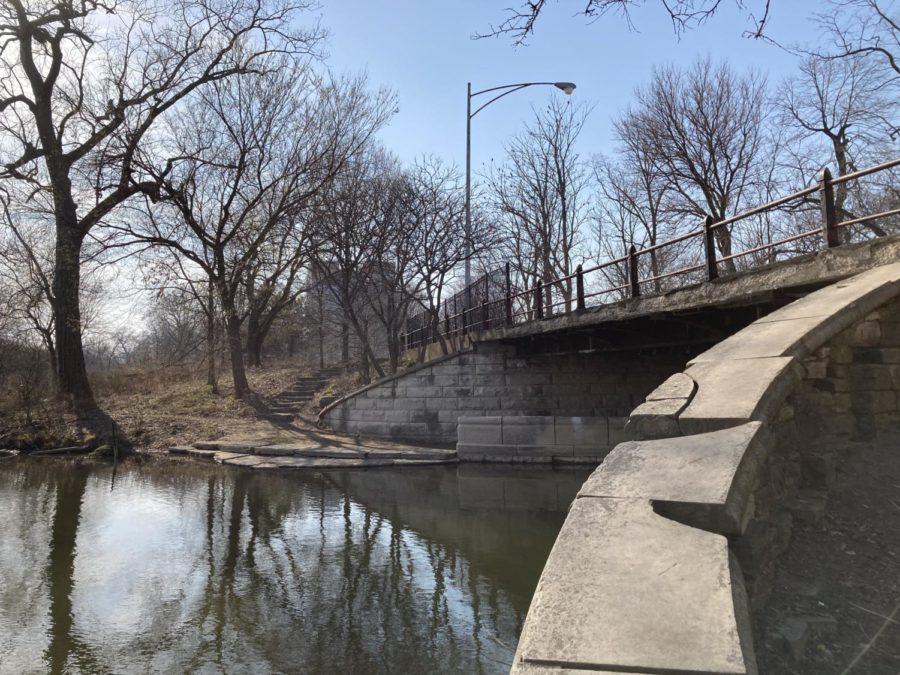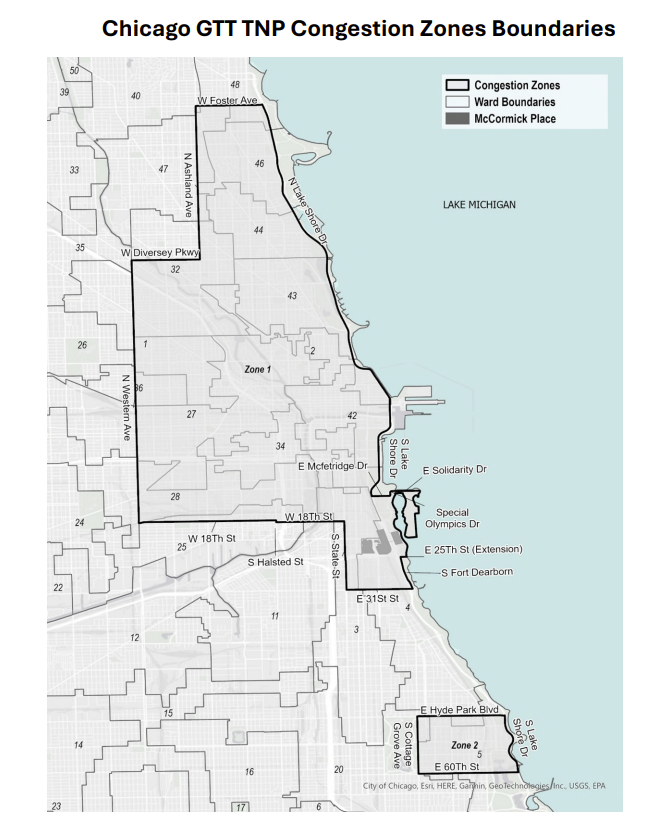On April 14, preliminary construction on the Obama Presidential Center (OPC) began in Chicago’s Jackson Park ahead of the scheduled groundbreaking at the South Side site in the fall. After five years of activism, community concern, and court battles, the developers of the $500 million project are finally beginning preconstruction work in advance of progress on the OPC campus, major transportation renovations in the area, and planned public space improvements in the near future.
Since the announcement of the OPC’s construction in 2015, activist groups on the South Side have voiced concerns regarding how the decision to build the 20-acre campus in Jackson Park will affect South Side residents and the precedent for future construction in historic sites. But after a four-year federal review of the plans for the OPC, the beginning of construction comes as a cause for disappointment for activist groups who fiercely oppose any development in the historic park—the largest of its kind on the South Side—and who fear the development may displace residents nearby.
Activist groups like the Chicago-based nonprofit Protect Our Parks (POP) have been at the forefront of this issue, filing lawsuits, the likes of which have been backed by the Reva and David Logan Foundation, and appeals that have been dismissed or gone unheard before the Supreme Court. Likewise, ordinances like the Community Benefits Agreement (CBA) and the Woodlawn Housing Preservation Ordinance have been seen as a step to curb the consequences of construction by preserving affordable housing and protecting residences from gentrification that is already on the rise in the area. Yet now, with preliminary construction underway and groundbreaking set to begin, activist groups have been as determined as ever to halt the OPC’s construction and voice concerns that they feel still haven’t been addressed or heard.
In an interview with The Maroon, POP President Herb Caplan said that his organization’s legitimate complaints went unheard. “I thought the law was so clear that as soon as we presented that to the judge, he’d rule in our favor, and that would be the end of it…. Three years later, we’re still arguing over those same legal issues,” Caplan said. “We base our case on actual state statutes, the park district statutes, and public trust provisions that said you can’t do what they’re doing.”
Caplan also highlighted that he believed that the people responsible for overseeing the public park system and protecting the interests of the public did not want to get involved with the case for political reasons, “suspending their belief in the laws and regulations that apply to other people” in favor of former president Barack Obama. “I think [the courts] felt that it had political implications. They were looking for a way to avoid ruling on the merits in the case, and that's why they ruled on a technicality.”
Nonetheless, Caplan reaffirmed POP’s commitment to the cause despite the legal hurdles. “I think [the Obama Foundation, its partners, and the City of Chicago] thought that they would be able to grind this down [and] exhaust all our resources until we were unable to proceed. Except it’s gone the other way. The longer we proceed, the more support we get in, and we’re never going to lay down. We’re not going to stop until we’ve exhausted every resource to protect the park.”
Caplan also believed that the efforts to curb consequences like gentrification were insufficient when it comes to the ordinances that aim to preserve affordable housing and prevent displacement and the effects of gentrification.
“I think that it’s too little. In the end, it’s not really going to remedy the harm that the local residents are experiencing,” Caplan said. “There’s absolutely nothing to ensure that the interests in the local residences are going to be respected, much less protected in any way,” given the “lack of credible study to support [claims of economic benefits].”
“The net effect of what you’re doing is essentially too little and too late,” he explained, noting that the benefits of a public park being taken away and the lack of outreach from the Obama Foundation to members of the community were causes for concern.
Caplan believes that the biggest consequences of construction and development for South Side residents were immediate and serious. “The net effect has been to drive up the price of rentals and properties in Woodlawn and South Shore. It’s also encouraged land speculators to come in and acquire properties and convert rental units into expensive condominiums,” he said. “[This] results in gentrification driving out the existing residents and bringing in richer people.”
Caplan suggested that this gentrification may have been “part of the motivation for the University of Chicago supporting the Obama Center in Jackson Park.” The University of Chicago has been involved in the OPC since the planning stages, when its bid was selected and it was announced that the project would be built in partnership with the University.
In a statement to The Maroon regarding Caplan’s suggestion, University spokesperson Jeremy Manier wrote, “The proposal led by the University of Chicago presented two primary options for the Center – one in Jackson Park, and one using a combination of city-owned land in Washington Park and adjacent property owned by the University. There was widespread support from community leaders and local residents for both locations and their potential to bring economic and cultural opportunities to the South Side.”
“The POP does not oppose an Obama Presidential Center. We oppose an OPC in Jackson Park,” Caplan clarified. “They could have started building this years ago. But instead, they made up their mind that they had to be in just this one location.… If it were built in one of the underserved South Side neighborhoods, like Washington Park, it would actually create the kind of economic opportunities that the Obama Foundation was saying would result from its construction.”
Caplan insisted that approval for the Obama Center sets a threatening precedent for future construction on historic sites and parks. “That’s one of the most terrible things that resulted from [the most recent decision permitting the OPC’s construction]. It not only permits the construction of the OPC in Jackson Park, but it removes all the obstacles, all the legal prohibitions, against exploiting public parkland for private purposes.”
“Tomorrow, Donald Trump could build a hotel on the lakefront, and there’d be no legal protection against it…on lakefront public land, which is priceless and irreplaceable,” he said.
POP plans on continuing to take action. Caplan said that, in addition to the ongoing lawsuit, the organization is preparing another lawsuit that will show its standing to sue, and it has contracted an architect to prepare a plan for the development of the OPC in an “alternative location.”
Indeed, with these choices, Caplan sees the OPC as a potential for opportunity. “Everybody wanted to honor Obama, but they also wanted their park to remain undamaged and their benefit from the park to remain unremoved.” In Caplan’s view, if Obama and his foundation were to reconsider their decisions, “He could be a hero.”









